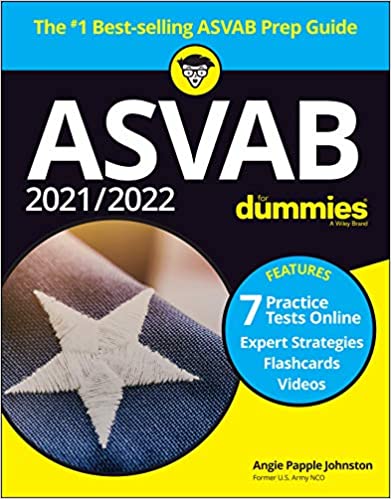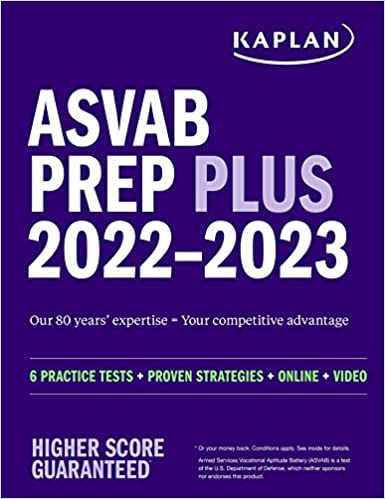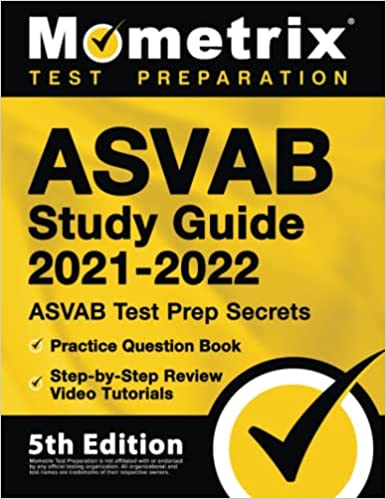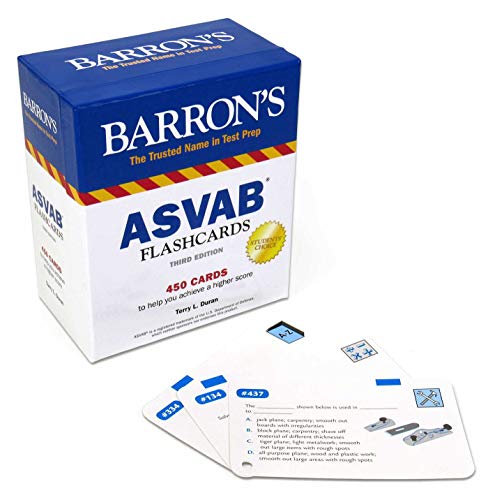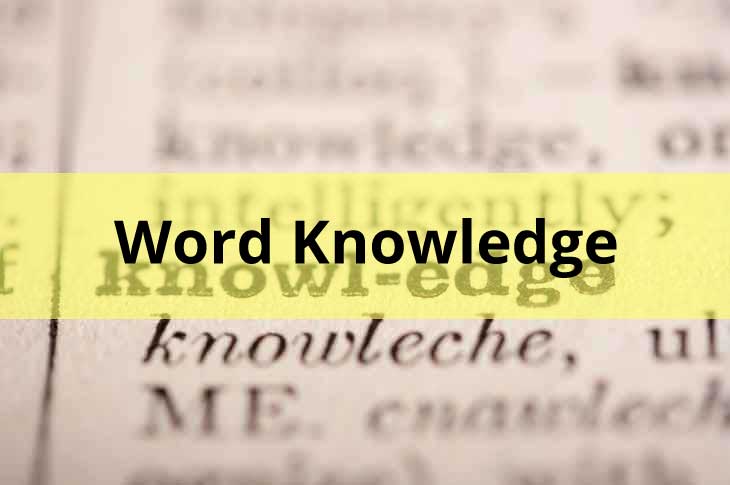
The Word Knowledge subtest of the Armed Services Vocational Aptitude Battery measures your vocabulary knowledge.
It is one of the four subtests, along with paragraph comprehension, arithmetic reasoning and mathematics knowledge, which are used to determine your Armed Forces Qualification Test score, which in turn determines your eligibility for military service.
In addition, a good score on this section is required for a number of military jobs, everything from the obvious journalist position to the maybe not so obvious firefighter position.
In other words, this is an important section of the ASVAB to do well and you should be sure to devote sufficient study time to preparing for this subtest.
The Test
On the Word Knowledge subtest you will have 8 minutes to answer 16 questions if you take the CAT-ASVAB. If you take the paper ASVAB, you will have 11 minutes to answer 35 questions.
On this test, you will be required to both differentiate words based on their spelling and to know what various words mean.
Here are some sample questions you may be asked in this section:
- Evocation most nearly means
- As he grew older, John began to show a proclivity for baseball. What does proclivity mean?
- Debauchery most nearly means
Parts of the Exam
There are two main parts to the Word Knowledge subtest:
- Definitions – in these questions you will be asked for the definition of a word. Here’s an example: “Chicanery” most clear means: with the possible answers being fraud, foolish, Chicago and love.
- Emphasized word – in these questions you will need to determine the meaning of a word based on how it is used in a sentence. For example, you might find a sentence that says “Mike said the game was a real barn burner.” with options being boring, exciting, long and quiet.
What to Study
One area you can study are prefixes, suffixes and roots. By familiarizing yourself with these concepts you may be able to more accurately guess the meanings of words that you do not know.
For example, if you knew that “bene” means “good” then you would be able to figure out that benefactor means someone who does good for someone else.
Here are some common prefixes, what they mean and a sample of them in use:
anti – against – antifreeze
de – opposite – defrost
dis – not, opposite of – disagree
en-, em – cause to encode – embrace
fore – before – forecast
in-, im – in – infield
in-, im-, il-, ir – not – impossible
inter – between – interact
mid – middle – midway
mis – wrongly – misfire
non – not – nonsense
over – over – overlook
pre – before – prefix
re – again – return
semi – half – semicircle
sub – under – submarine
super – above – superstar
trans – across – transport
un – not – unfriendly
under – under – undersea
Here are some common suffixes, what they mean and a sample of them in use:
-able or -ible – capable of – agreeable
-age – act of break – breakage
-al – relating to function – functional
-ance or -ence – instance of an action – performance
-ation – action, process – liberation
-en – made from – silken
-ful – full of – helpful
-ic – relating to – alcoholic
-ical – possessing a quality of – magical
-ion – result of, act of – legislation
-ish – resembling – childish
-ism – belief in – Buddhism
-ist – one who characterizes – elitist
-ity – quality of – specificity
-less – not having – childless
-let – small one – booklet
-man – relating to humans – gentleman
-ment – act or process of – establishment
-ness – possessing a quality – goodness
-or, -er – one who does a thing – orator
-ous – state of – dangerous
-y – quality of – tasty
Here are some common roots, what they mean and a sample of them in use:
anthro or anthrop – relating to humans – anthropology
bibl – relating to books – bibliography
brev – short – abbreviate
cede or ceed – go, yield – recede
chrom – color – monochrome
cogn – know – cognizant
corp – body – corporate
dict – speak – diction
domin – rule – dominate
flu or fluc – flow – influx
form – shape – formulate
fract or frag – break – fragment
graph – writing – biography
junct – join – juncture
liber – free – liberate
lum or lumen – light – illuminate
oper – work – cooperate
path or pathy – suffer, feeling – pathology
port – carry – portable
press – squeeze – repress
scrib or script – write – describe
sens or sent – feel – sentient
tract – pull – traction
voc or vok – call – revoke
How to Prepare
You can study your dictionary and as we mentioned in the previous section, you can study common prefix, suffix and root principles.
To test your current word-knowledge skills, we also recommend taking our Word Knowledge Practice Test, which is filled with questions that are similar to what you will find on the real ASVAB.
Taking this practice test will help you develop the knowledge you need to earn a high score. It will also help you get familiar with the CAT-ASVAB test-taking process so that you feel more confidence and comfortable when you go to take the real test.
You can take our practice test as many times as you like and each time you do take it we will reorder the questions to create a new learning experience for you.
Additional study tips include:
- Read the newspaper
- Do crossword puzzles
- Play vocabulary games
As an added benefit, not only will studying Word Knowledge help you with all parts of the ASVAB, it will also benefit you in life in general as words play a big role in our society and understanding them better will help you communicate more effectively as well as better understand those around you.
Recommended ASVAB Study Guides
Using the right ASVAB study guide is essential to ensure the best possible outcome when preparing for the exam.
